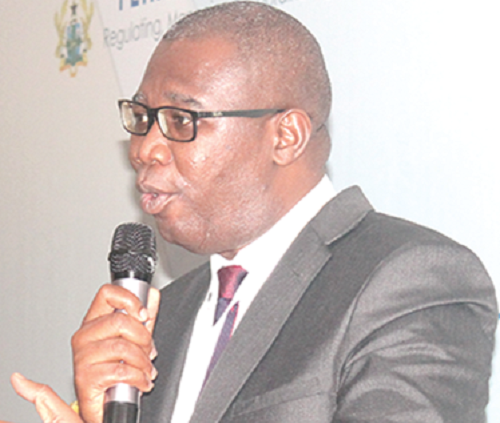
Petroleum, Insurance commissions get tough with oil companies
The Petroleum Commission (PC), in collaboration with the National Insurance Commission (NIC), will constitute a joint task force to ensure that players in the upstream oil and gas sector comply with local insurance regulations.
The task force, to be operational by the end of the year, will complement efforts by a monitoring team at the NIC to ensure greater compliance with local content by petroleum upstream operators.
The Director in Charge of Local Content at the PC, Mr Kwaku Boateng, said although the insurance protocols and compliance in the upstream oil and gas sector had been in existence since 2014, the level of compliance had been low, with some still using foreign insurance cover.
“We have agreed to set up the task force. What we are doing now is to take the necessary information and documentations from the insurance companies to assess compliance. We are working together with the NIC to ensure that we achieve compliance,” he said at a workshop for operators, contractors and sub-contractors organised by the PC, in collaboration with the NIC and the Ghana Oil and Gas Insurance Pool (GOGIP).
It was to educate and engage players in the petroleum upstream sector on the implementation of the Upstream Oil and Gas Insurance Protocol in accordance with L.I. 2204 and the Insurance Act, 2006 (Act 724).
Read Also:Petroleum Commission to crack whip on non-compliant companies
Challenges
He said one of the setbacks of the compliance was that most of the upstream companies had global insurance arrangements from their home countries, which were often cheaper compared to doing it in different countries.
“So if you take a particular company, they can have their office in Houston, Aberdeen and so they do all their insurance globally, which is cheaper for them. The main reasons are administrative and financial because doing insurance in various countries makes it expensive,” he explained.
He added that some vessels which arrived in Ghana for jobs to last about a month or three, usually had a full year insurance cover already which made it a challenge to take up new short-term cover locally.
Mr Boateng also explained that most of the players in the upstream sector were skeptical about the capacity of local insurance companies to pay claims when they occurred.
“For instance, a Floating Production Storage Offloading (FPSO) vessel is about $1.5 billion, so if it is fully insured in Ghana and something happens, the local insurance companies do not have the capacity to pay the claim, but there is an arrangement where NIC ensures that they retain what they can here and insure the rest overseas,” he added.
Strong signals
The Deputy Chief Executive Officer of the Petroleum Commission, Mr Prince Benjamin Aboagye, said the workshop was to bring the players together to fashion how to ensure compliance with the laid down protocols.
“Most of the provisions are not being complied with and this is the essence of our meeting together to fashion a way to send a very strong message out there,” he said.
The Commissioner of NIC, Mr Justice Ofori, said the protocols provided a window of opportunity for local insurance companies to participate in the oil and gas sector.
He said the NIC had noted incidents of non-compliance and would, therefore, work with the relevant institutions to ensure compliance.

